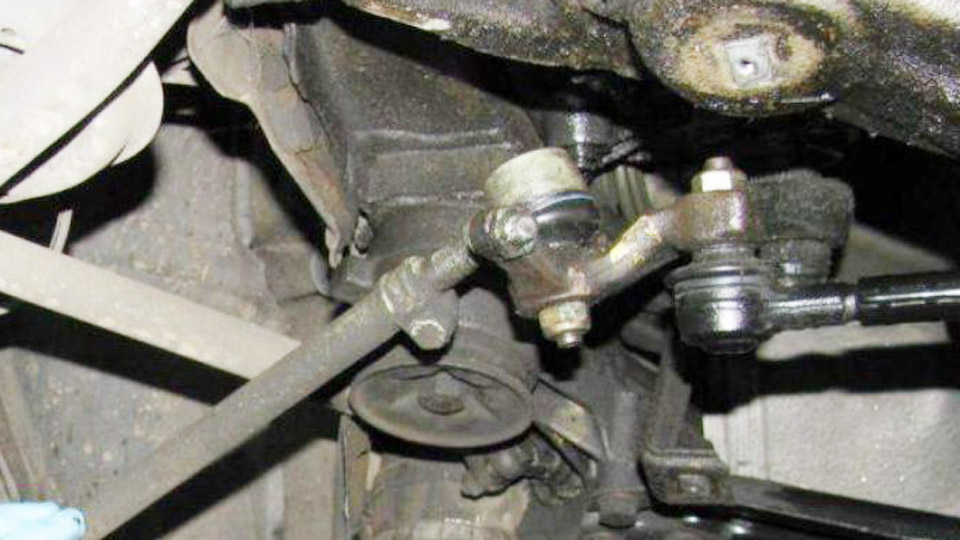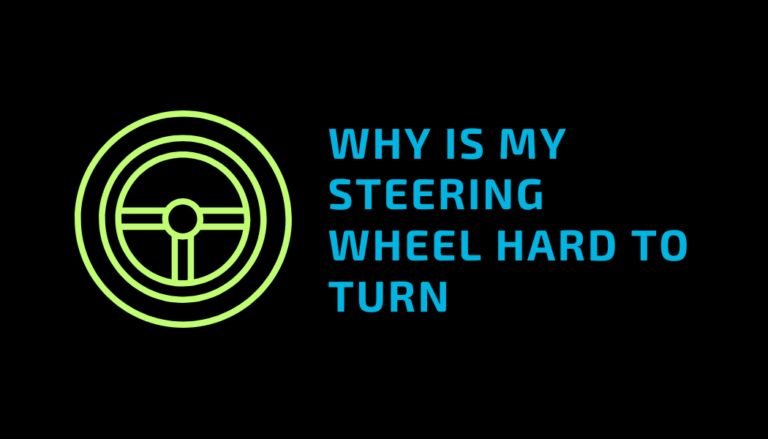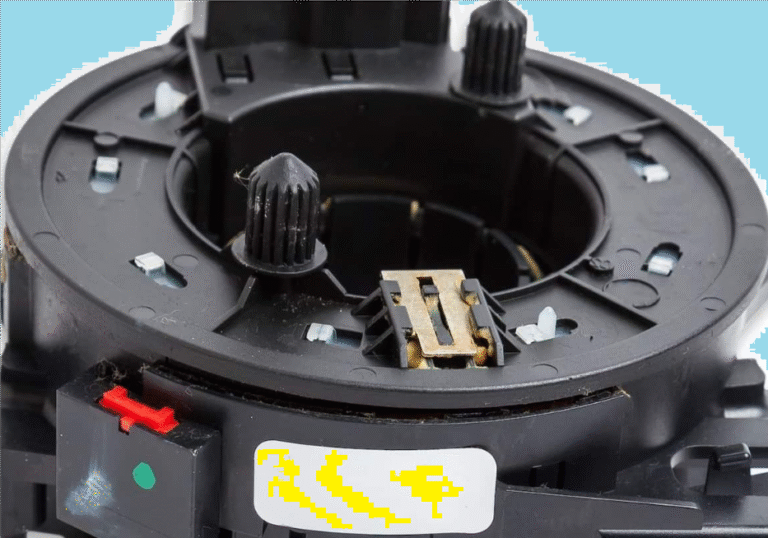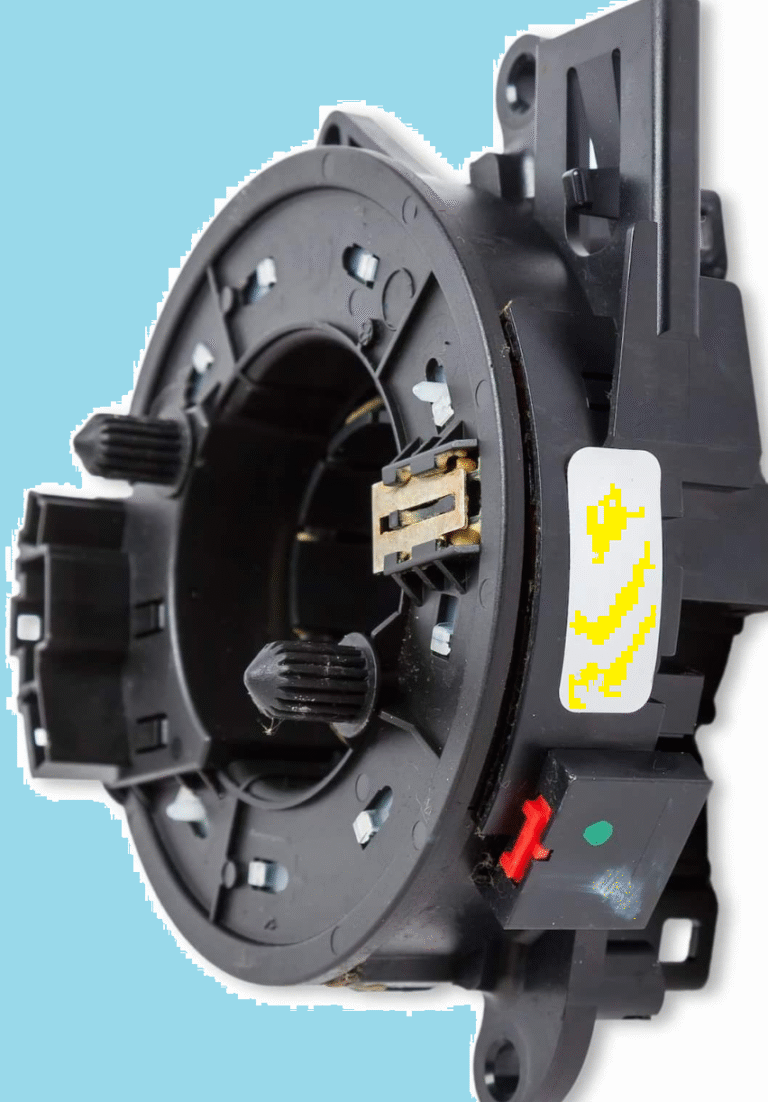You’re driving along, maybe turning into a parking lot or navigating a sharp curve, and suddenly you hear it—a weird noise coming from your car when you turn the steering wheel. It’s unsettling, isn’t it? Gripping the wheel a bit tighter, wondering if my car’s trying to tell me something important.
I’ve dealt with all sorts of car noises, from squeaks to groans, and I’ve learned that those sounds when turning are often a sign that something in the steering or suspension system needs attention.

Image by carfromjapan
I’m going to share what I’ve discovered about why you might hear a noise when turning your steering wheel, based on my own experiences fixing cars and talking to mechanics. If you’re a daily commuter or a weekend road-tripper, let’s figure out what’s causing that racket and how to fix it.
What Causes Noises When Turning the Steering Wheel?
When you turn your steering wheel, a lot of parts in your car move together—gears, joints, belts, and more. These parts can make noises if something’s worn out, dry, or out of alignment. I remember the first time I heard a whining noise in my old sedan while turning into my driveway. It freaked me out! I thought the whole steering system was about to give up.
After some digging and a few trips under the hood, I learned there are several common culprits behind these noises. Let’s go through them one by one so you can pinpoint what’s going on with your car.
Low or Dirty Power Steering Fluid
If your car has a hydraulic power steering system, the fluid is what makes turning the wheel smooth and easy. When the fluid is low or dirty, you might hear a whining or groaning noise when you turn. I ran into this with my SUV a few years back.
Every time I turned the wheel, it sounded like the car was complaining. I checked the power steering reservoir under the hood, and sure enough, the fluid was low and looked murky.
Low fluid can happen because of a leak—check under your car for red or brownish puddles. Dirty fluid, on the other hand, picks up debris over time, which can clog the system and make the pump work harder, causing noise. To check, find the power steering reservoir (usually a small plastic container with a cap labeled “power steering”).
Look at the fluid level and color—it should be clear or slightly pink. If it’s low, top it up with the fluid recommended in your car’s manual. If it’s dirty, a flush might be needed, which costs about $100-$150 at a shop.
Failing Power Steering Pump
The power steering pump pushes fluid through the system to help you turn the wheel. If it’s failing, you’ll often hear a loud whining or grinding noise, especially when turning at low speeds. This happened to me with my old truck—it sounded like a high-pitched wail every time I parked. The pump was on its last legs, and the noise was a clear warning.
Pumps wear out over time, especially in older cars. Dirt in the fluid or a failing bearing can make the pump noisy. If you hear a consistent whine that gets louder when you turn, have a mechanic test the pump’s pressure.
Replacing a power steering pump can cost $200-$500, depending on your car, but it’s cheaper than waiting for it to fail completely and damage other parts. Regular fluid flushes can help prolong the pump’s life.
Worn Tie Rods or Ball Joints
Tie rods and ball joints connect your steering system to the wheels, letting them pivot when you turn. If these parts are worn or dry, they can make clunking, clicking, or squeaking noises. I had a tie rod go bad on my hatchback a while ago, and every sharp turn sounded like a metal clunk. It was annoying and a bit scary, especially on tight corners.
These parts are usually greased and sealed in rubber boots, but the grease can dry out, or the boots can crack, letting dirt in. That causes friction and noise. Check for loose steering or uneven tire wear, which are signs of worn tie rods or ball joints.
A mechanic can inspect these by lifting the car and checking for play in the joints. Replacing them typically costs $100-$400 per part, but it’s crucial for safe steering.
Steering Rack Issues
The steering rack is the main component that translates your wheel’s movement into turning the front wheels. If it’s worn or damaged, you might hear grinding or clunking when you turn. I noticed this on a used car I bought—the steering felt stiff, and there was a faint grinding sound. The rack’s internal gears were worn, and the lubrication was shot.
Steering racks can wear out from heavy use, especially on rough roads. Leaks in the rack’s seals can let fluid out and dirt in, increasing friction and noise. If you hear grinding or feel resistance when turning, have a mechanic check the rack. Fixing or replacing it is a big job, costing $500-$1,500, but it’s not something you can ignore since it affects your ability to steer.
Serpentine Belt or Tensioner Problems
The serpentine belt powers the power steering pump in many cars. If it’s loose, worn, or slipping, you might hear a squealing or chirping noise when turning. I had this issue with my coupe during a hot summer.
The belt was slipping, and every turn sounded like a screeching bird. Tightening the belt fixed it temporarily, but I ended up replacing it and the tensioner.
Check the belt for cracks, fraying, or a shiny, glazed look. A loose tensioner can also cause noise by letting the belt slip. Replacing a serpentine belt is usually affordable—$50-$150—but check it regularly to avoid bigger issues. If you hear squealing that changes with engine speed, this is likely the problem.
Worn Wheel Bearings
Wheel bearings let your wheels spin smoothly. When they wear out, they can make a humming, grinding, or growling noise, especially when turning. I had a bad wheel bearing on my minivan once, and the noise was loudest when I turned left. It sounded like a low rumble, and the steering wheel vibrated slightly.
Bearings wear out over time, especially in high-mileage cars or those driven on rough roads. If the noise changes with speed or gets louder during turns, it’s likely a bearing issue. Have a mechanic check by lifting the car and spinning the wheels. Replacing a wheel bearing costs $150-$400 per wheel, but it’s critical for safe handling.
Suspension Component Wear
Your suspension system works with the steering to keep your car stable. Worn parts like control arm bushings, struts, or sway bar links can make noises when you turn. I had a squeaking noise in my old SUV every time I turned into a parking spot. It turned out to be worn control arm bushings rubbing metal on metal.
Bushings are rubber or polyurethane pieces that cushion movement, but they wear out and dry up over time. When they do, you’ll hear squeaks or clunks. Check for uneven tire wear or a loose feeling when steering.
Replacing bushings or other suspension parts can cost $100-$500, depending on the car. Regular inspections during oil changes can catch these issues early.
Comparing Common Causes of Steering Wheel Noises
Here’s a table to help you identify what’s making that noise when you turn:
| Cause | Noise Type | Symptoms | Fix |
|---|---|---|---|
| Low/Dirty Power Steering Fluid | Whining or groaning | Stiff steering, fluid leaks | Top up or flush fluid |
| Failing Power Steering Pump | Whining or grinding | Hard steering, noise at low speeds | Replace pump, flush fluid |
| Worn Tie Rods/Ball Joints | Clunking or clicking | Loose steering, uneven tire wear | Replace joints, regrease |
| Steering Rack Issues | Grinding or clunking | Stiff steering, fluid leaks | Repair or replace rack |
| Serpentine Belt/Tensioner | Squealing or chirping | Noise changes with engine speed | Replace belt or tensioner |
| Worn Wheel Bearings | Humming or grinding | Noise louder when turning | Replace bearings |
| Suspension Component Wear | Squeaking or clunking | Loose steering, uneven tire wear | Replace bushings or components |
How to Diagnose the Noise
Figuring out what’s causing the noise when you turn can feel like a puzzle, but you can narrow it down with some simple checks. Here’s what I do when I hear something odd:
- Listen to the noise. Is it a whine, clunk, squeal, or grind? This can point to the pump, joints, belt, or bearings.
- Note when it happens. Does it occur at low speeds, high speeds, or only when turning one way? This helps identify the source.
- Check power steering fluid. Look at the reservoir under the hood. Low or dirty fluid is a common cause of whining.
- Inspect tires and wheels. Uneven wear or loose lug nuts can cause vibrations and noise.
- Test drive carefully. Turn the wheel at different speeds and listen for changes in the noise.
- Look for leaks. Check under the car for fluid puddles, which could mean a power steering leak.
If you can’t figure it out, take your car to a mechanic. They can lift it and inspect the steering and suspension for wear or damage.
When to See a Professional
Some fixes, like topping up power steering fluid or tightening a belt, are easy enough for most people. But noises from the steering rack, wheel bearings, or suspension usually need a pro. I tried fixing a ball joint myself once, and it was a headache without the right tools.
A mechanic has the equipment to diagnose and repair complex issues safely. If the noise is loud, persistent, or comes with steering problems, don’t wait—get it checked. Noises often mean parts are wearing out, and driving with them can be dangerous.
Advice for Keeping Your Steering Quiet
To avoid those annoying noises when turning, here’s what I’ve learned works:
Check power steering fluid regularly. Look at it every few months or during oil changes. Top it up if low, and flush it every 50,000 miles.
Inspect tires and alignment. Check tire pressure monthly and get an alignment yearly to prevent uneven wear that stresses steering parts.
Listen for early signs. Don’t ignore small noises—they often get louder and more expensive if you wait.
Drive carefully. Avoid potholes and rough roads when you can. They wear out suspension and steering parts faster.
Stick to a maintenance schedule. Have a mechanic check your steering and suspension during routine services like oil changes or tire rotations.
Conclusion
Hearing a noise when you turn your steering wheel can make any drive feel stressful, but now you know it’s your car’s way of saying something needs attention. I’ve been there, cringing at every clunk or whine, wondering if my car was about to break down.
From low power steering fluid to worn suspension parts, the causes are often fixable with the right approach. By listening to the type of noise, checking fluid levels, and keeping up with maintenance, you can catch problems early and keep your steering quiet and smooth.
There’s nothing like the peace of a quiet, responsive car as you glide around corners or cruise down the highway. With a little care, you can silence those noises and enjoy the drive again.
FAQs
Why does my steering wheel make a whining noise when I turn?
A whining noise usually means low or dirty power steering fluid or a failing pump. Check the fluid level and color in the reservoir. Top it up if low, or have a mechanic flush it or check the pump.
What causes a clunking sound when I turn?
Clunking often comes from worn tie rods, ball joints, or suspension parts. Loose steering or uneven tire wear are clues. Have a mechanic inspect these components.
Is it safe to drive with a noisy steering wheel?
It depends on the noise. A faint whine might be okay for a short drive to a mechanic, but loud clunking or grinding means you should stop driving and get it checked right away.
Can a bad serpentine belt cause noise when turning?
Yes, a loose or worn serpentine belt can squeal or chirp when you turn. Check the belt for cracks or looseness, and replace it if needed.
How do I know if my wheel bearings are causing the noise?
Wheel bearings often make a humming or grinding noise that gets louder when turning or with speed. A mechanic can lift the car and spin the wheels to check.
How often should I flush my power steering fluid?
I flush mine every 50,000 miles or as recommended in the car’s manual. It keeps the system clean and reduces whining noises.
Can worn tires cause noise when turning?
Yes, unevenly worn or damaged tires can cause vibrations and noise. Check for uneven tread or low pressure, and rotate or replace tires as needed.




